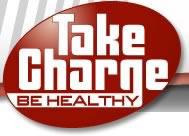Background & Development
Background
West Virginia students have a unique opportunity to learn health content via the Internet as part of their school curriculum. Take Charge Be Healthy® is a web-based program that focuses on improving teen’s health through impacting knowledge, attitudes, and behaviors. The instructional module focus on physical activity, nutrition, and other health related issues, such as cardiovascular health, obesity, and diabetes. Beginning Fall 2007,Take Charge Be Healthy®(TC) became available to all West Virginia teachers and their students. Development and implementation of this module has been made possible through funding provided by the WV Cardiovascular Health Program in the Bureau for Public Health, the Claude W. Benedum Foundation, WV state funding from the office of the Governor, and the WV CARDIAC Project. Development of the module was based on the successful development and implementation of a similar instructional module for 4th and 5th graders, Healthy Hearts for Kids® (healthyhearts4kids.org)
Development Process
In 2006, the creator, Eloise Elliott, PhD, began the initial quest of the most needed and appropriate content for teens to better learn important health concepts and apply them to their daily lives. After an extensive study of the related literature, evaluation results from a similar module for younger children, and a tiered focus group implementation with eight middle school students and two teachers, the initial website content was actualized. A group of content experts (4) were then convened for a two-day working session to create age-appropriate content for each of the proposed sections, and to make recommendations to the technical functionality and design of the website. Funding was secured for website development. Over the next year, the website was developed with constant input from experts in health content, technology programming, web design, child development, and schools. After Phase 1 of development was completed, a thorough evaluation was conducted by field experts and recommended changes were made. Following, a pilot study was conducted in schools in Spring 2007.
An Evidence-based Intervention
A pilot study of the module use with students was completed in two WV middle school classes and one high school class (3 health teachers, 309 students) in Spring 2007. An analysis of module technical functionality, content appropriateness and appeal, and contextual functionality was done by analyzing teacher process recordings, teacher and student focus groups, and student task sheets and final survey. Results from the Pilot were used to make changes to the module, including additional features, changes in user progression, changes to identified technical functionality problems, different user incentives, and less text/more interaction. Take Charge Be Healthy® was offered to WV schools in Fall 2007.
The use of the internet medium allowsTake Charge Be Healthy® to include embedded assessment measures, including pre-post knowledge tests, a pre-post attitude and behavior survey, and physical activity and the diet 24-hour recall instruments. Data collection for school, teacher, class, and student demographics is embedded in the TC data capture system. Data analysis is underway on data collected from users during the 2007-08 and 2008-09 school years. (completion date is targeted for August 1, 2010)
Based on five years of data from a similar web-based instructional module, Healthy Hearts for Kids®, (healthyhearts4kids.org) it is most likely that knowledge in all three content areas will show significant improvements. In analyses, student knowledge responses (pre-post) in all content areas (heart, physical activity, nutrition, tobacco) improved for all cohorts participating in the program in all five years at p<0.01 level). Other significant outcomes included improvements in children’s behavioral intentions in physical activity and nutrition, such as:
- increases in intentions to be physically active tomorrow, a year from now, and as an adult,
- decreases in intentions to drink 2 or more soft drinks tomorrow, a year from now, and as an adult
- increases in intentions to eat 5 fruits and vegetables tomorrow, and a year your now











